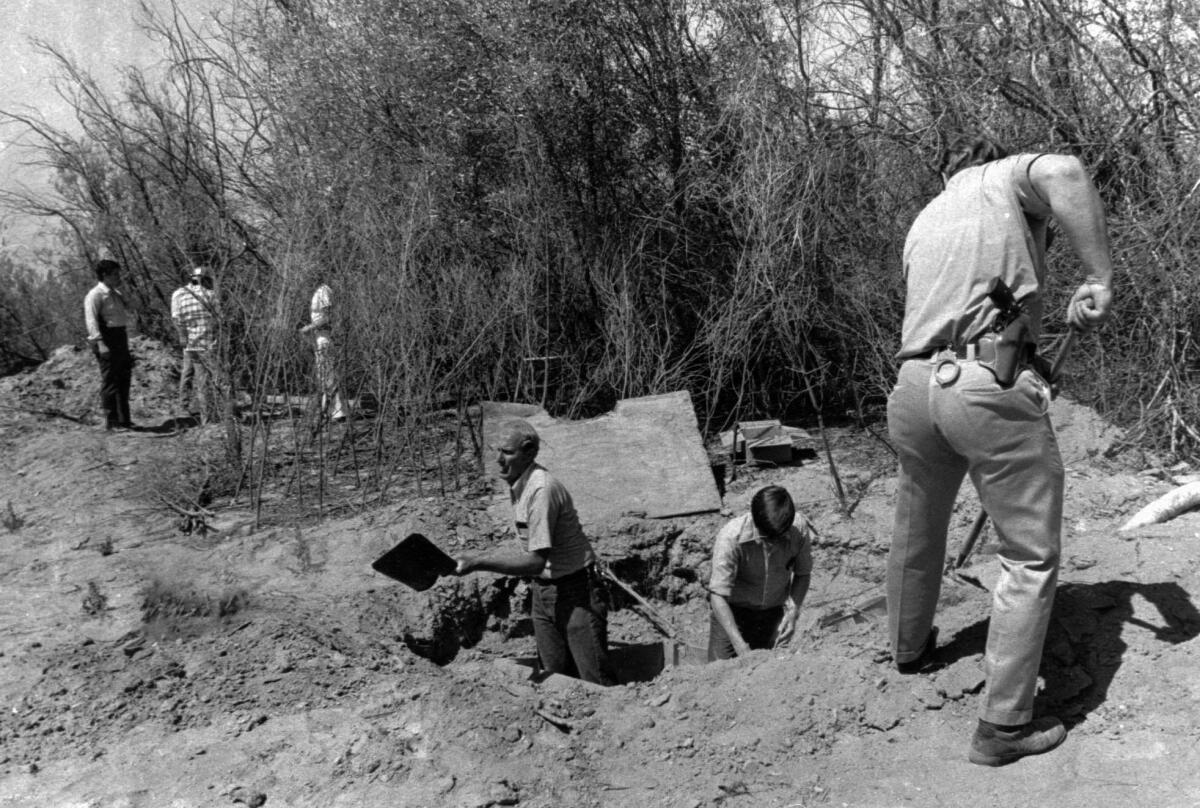Parole recommended for 1976 Chowchilla school bus hijacker

SACRAMENTO — The last of three men convicted of hijacking a school bus full of children and holding them and their driver for $5-million ransom in 1976 was recommended for parole on Friday with the support of two of the victims.
Parole commissioners decided Frederick Woods, 70, no longer is a danger to the public after previous panels had denied him parole 17 times.
The decision by Commissioner Patricia Cassady and Deputy Commissioner Keith Stanton must still be reviewed by Gov. Gavin Newsom, but the governor can’t block it because it’s not a murder case. He could only refer the decision to the full Board of Parole Hearings for further consideration.
The governor’s late father, state Judge William Newsom, was on an appellate panel in 1980 that reduced the three kidnappers’ life sentences to give them a chance at parole. Once retired, William Newsom advocated for their release in 2011, noting that no one was seriously physically injured during the kidnapping.
Woods’ accomplices, brothers Richard and James Schoenfeld, already were freed. An appeals court ordered Richard released in 2012 and then-Gov. Jerry Brown paroled James in 2015.
All three were from wealthy San Francisco Bay Area families when they kidnapped 26 children and their bus driver near Chowchilla, about 125 miles southeast of San Francisco.
They buried the children, ages 5 to 14, along with their bus driver in a ventilated bunker east of San Francisco. The victims were able to dig their way out more than a day later.
Woods read an apology for his crime at Friday’s parole hearing.
“I’ve had empathy for the victims which I didn’t have then,” Woods said. “I’ve had a character change since then.”
“I was 24 years old,” he added. “Now I fully understand the terror and trauma I caused. I fully take responsibility for this heinous act.”
California law now requires parole commissioners to give greater weight to freeing inmates who were young when they committed their crime and to those who are now elderly and have served lengthy prison sentences.
At least one prosecutor and several survivors of the kidnapping criticized the panel’s decision.
“This is an individual who’s demonstrated how dangerous he is. He’s ruined the lives of dozens of these kids — they still struggle, a lot of them, with the aftereffects of this,” Madera County Dist. Atty. Sally Moreno said after the decision.
She thinks Newsom may seek review by the full parole board, given the notoriety of the crime.
“He’s not someone who should be released,” Moreno said. “He’s demonstrated the capacity to do this kind of a crime … to mastermind and carry out something like this.”
Newsom’s office said that the governor “carefully reviews parole decisions to determine whether a parole grant is consistent with public safety.”
Woods and the Schoenfelds planned their crime for more than a year. They wanted to get $5 million ransom from the state Board of Education.
James Schoenfeld once told parole officials that he envied friends who had “his-and-hers Ferraris.” Woods said during an earlier parole hearing that he just “got greedy.”
Woods said in his 2012 parole hearing that he didn’t need the money, and both those backing and opposing his parole Friday referenced his relative wealth.
“I believe you have served enough time for the crime you committed,” said survivor Larry Park, who supported Woods’ release along with Rebecca Reynolds Dailey. But Park added that “I’m concerned about the addiction you may have about money,” urging Woods to consider getting treatment.
Jennifer Brown Hyde, one of those opposing Woods’ parole, said he has yet to fully make amends for his crime and “is still a millionaire.”
“He could have done much more,” she said. “Even the settlement paid to some of us survivors was not sufficient. It was enough to pay for some therapy but not enough to buy a house.”
Matthew Medrano, son of Jodi Heffington Medrano, sobbed several times as he recounted watching his mother change from being a loving, outgoing survivor until she experienced darker, bitter thoughts and depression before her early death.
Others opposing Woods’ parole — survivors Lynda Carrejo, Laura Yazzi Fanning and Carol Marshall, mother of survivor Michael Marshall — also testified about the long-term harm done by the kidnapping. It affected entire families, said Marshall.
Madera County prosecutors said Woods’ disciplinary infractions in prison showed he had not yet learned to follow the rules.
But Woods and his attorney, Dominique Banos, emphasized that he had a discipline-free record since his last parole hearing in October 2019.
Woods and his attorney were at the California Men’s Colony prison in San Luis Obispo, while other participants were in remote locations because of the COVID-19 pandemic.
More to Read
Sign up for Essential California
The most important California stories and recommendations in your inbox every morning.
You may occasionally receive promotional content from the Los Angeles Times.










